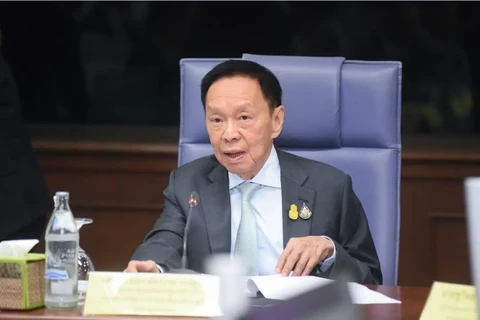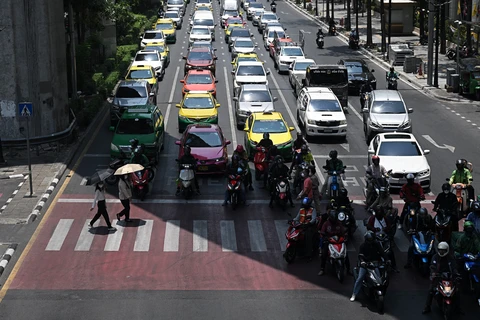Bangkok (VNA) - The Thai Government is being urged to increase the proportion of renewable power generation to more than the target of 50% set in the power development plan (PDP).
The increase, up from 10-12% of total power supply at present, is needed because Thailand is committed to achieving carbon neutrality by 2050, said Tanachai Bunditvorapoom, chief executive of Absolute Clean Energy.
The country has plans to reduce carbon dioxide emissions in the power sector, but similar efforts in other sectors are unclear, so it needs to increase the target in the PDP. That means the power sector needs to try harder to reduce carbon dioxide emissions, he said.
In 2021, Thailand declared at the 26th UN Climate Change Conference in Glasgow its commitment to seriously tackle climate change. The country aims to reach carbon neutrality and set a net-zero target by 2065. Regulated by the Energy Regulatory Commission (ERC), a renewable power generation scheme was initiated.
According to Sarat Prakobchart, deputy director-general of the Energy Policy and Planning Office, authorities are considering increasing the renewable power target to more than 50% to ensure Thailand can significantly cut carbon dioxide emissions, but some challenges remain.
They need to consider the possibility of higher electricity bills, driven by costly renewable power, he said.
Thailand may lose competitiveness if the country totally supports renewable power without considering its budget limitations, he added./.
The increase, up from 10-12% of total power supply at present, is needed because Thailand is committed to achieving carbon neutrality by 2050, said Tanachai Bunditvorapoom, chief executive of Absolute Clean Energy.
The country has plans to reduce carbon dioxide emissions in the power sector, but similar efforts in other sectors are unclear, so it needs to increase the target in the PDP. That means the power sector needs to try harder to reduce carbon dioxide emissions, he said.
In 2021, Thailand declared at the 26th UN Climate Change Conference in Glasgow its commitment to seriously tackle climate change. The country aims to reach carbon neutrality and set a net-zero target by 2065. Regulated by the Energy Regulatory Commission (ERC), a renewable power generation scheme was initiated.
According to Sarat Prakobchart, deputy director-general of the Energy Policy and Planning Office, authorities are considering increasing the renewable power target to more than 50% to ensure Thailand can significantly cut carbon dioxide emissions, but some challenges remain.
They need to consider the possibility of higher electricity bills, driven by costly renewable power, he said.
Thailand may lose competitiveness if the country totally supports renewable power without considering its budget limitations, he added./.
VNA























